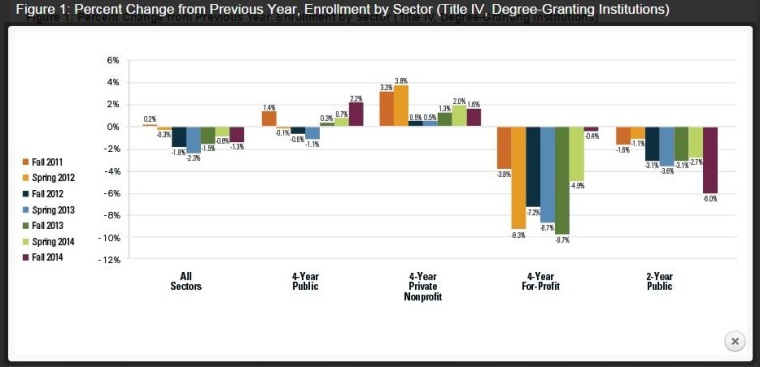College enrollment numbers drop, pointing to worst decline since WWII

HERNDON, Va. (Christian Examiner) – Information released by the National Student Clearinghouse, which polls colleges and universities, showed the combined number of students attending fulltime and part time study at all post-secondary schools fell for the third straight year, dropping about 1.3 percent in 2014.
Despite the value attributed to 2 year programs such as community colleges, these institutions saw the greatest enrollment decrease, nearly 6.0 percent.
Some of the trend is purely demographics.
According to census numbers reported by the Wall Street Journal this fall, between 1966 and 2010, college student numbers doubled as Baby Boomers and their children joined the college ranks. But the number of high school graduates peaked in 2011 and is expected to fall until flattening in 2024.
The economy also is likely a factor.
The WSJ said students are seeking lower cost alternatives, pointing out that the "number of college students taking at least one online course nearly doubled to 45 percent between 2008 and 2013."
For-profit private four-year universities were among those hit hard, experiencing about a half percent drop year to year. These schools typically are impacted negatively during poor economic times and boosted when the country is experiencing economic boons.
Enrollment at public four-year public institutions and four-year private non-profit schools continued to increase slightly, with rises of 2.2 and 1.6 percent, respectively.
The NSC did not break out information for private Christian schools.
According to Blake Neff of The Daily Caller, "the sustained slide of the past few years is a first in recent American history." He added that "every single president has ended their time in office with more students attending college, a reflection of both a rising population and the growing need for a degree to advance one's career."